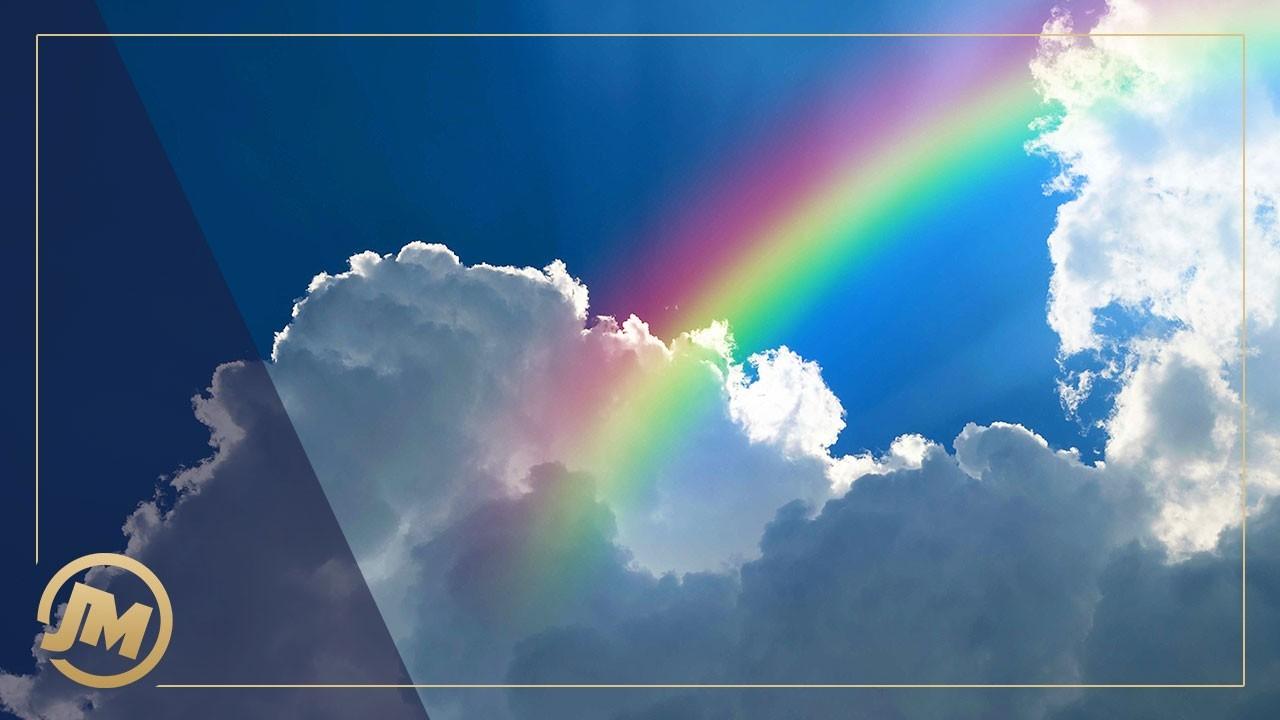The Holy Grail in the Midst of Crisis
Apr 26, 2020
At the moment, the world is grappling with a global pandemic and while some people are pointing political fingers, others are simply trying to survive.
This crisis which has led to indescribable trauma, can affect people for years, even for the rest of their life. Yet, some people somehow are able to overcome even the most difficult circumstances within a matter of days or weeks.
What’s the difference between the two? What is the difference between somebody who is overwhelmed with stress, anxiety, and pressure, even feeling depressed and who struggles to get out of that dark pit and those who seem to get up, brush themselves off, and march forward?
"In every day, there are 1,440 minutes. That means we have 1,440 daily opportunities to make a positive impact." – Les Brown
 Discouragement Is Easy
Discouragement Is Easy
Getting discouraged is easy. Any one of us can readily fall into a state of discouragement when life takes a hard turn to the left.
Perhaps everything was going great for you, 2020 started off with high ambition, hopes, dreams, and inspiration, and by the end of March you were left unemployed, worried about your health, concerned about family, or wondering whether you would actually survive the next few months.
Suddenly, you found yourself discouraged.
All that work you put into your career, your job, the investments you made, your focus on retirement, or maybe even your home began to teeter on the edge of collapse.
You looked at the finances, realized you hadn’t saved as much as you would’ve liked, and your credit cards were pushing close to maxed out.
If you don’t come up with something soon you may not be able to pay your mortgage. Sure, the government has stepped in to provide some relief, forcing many lenders to accept late mortgage payments without penalty, utilities have also done the same, but eventually the bill is going to be due.
What happens if the jobs don’t come back? Just because the SBA (Small Business Administration) is doling out loans to help small businesses avoid laying off more people, what about the ones who are laid off first?
Maybe you were not considered an essential employee and/or furloughed. That doesn’t mean your employer is going to get back on his or her feet once this is all over and the government finally says, “It’s okay to get back to business.”
It’s easy to get discouraged, especially when we don’t know the outcome of what’s ahead. The past always looks different through older eyes. Once we know how everything worked out, we often think back to these difficult times and wonder why we worried so much.
What I want you to focus on right now, though, is looking around you and seeing the things you do have.
 It’s All About Gratitude
It’s All About Gratitude
One of the most common things most of us do during crises or calamities is to think about what we lost. We think about the dreams we had that suddenly dissipated into smoke.
Like a vapor in the wind the comfortable life we had, our savings, our job, our security can all be blown away with the slightest of breaths.
That often leaves us looking around at what is no longer there. We see what’s missing, what we can’t have, what we may have to wait for in the future, and that can cause a great deal of frustration.
It can even cause stress and anxiety.
Instead of focusing on what was lost or what you no longer have at the moment, the most powerful antidote to depression, anxiety, frustration, and doubt during these trying times is gratitude.
It seems almost contradictory to think about gratitude when going through a traumatic experience. Believe me, I get it. Most recently I suffered the most traumatic event in my life and at the time I found it extremely difficult to think of what I was grateful for versus what I had lost. But when I finally made that switch it was like a match went off in a dark room. My life began to change instantly.
Gratitude is about being thankful for the things we do have.
- Are you healthy? Be thankful.
- Is your family healthy? Be thankful.
- Do you still have a roof over your head? Be thankful.
- Do you have food on the table? Be thankful.
- Are you a first responder or healthcare worker standing on the front lines day after day, sharing masks and reusing gloves due to limited supply, worried about getting sick, but doing it anyway? Be thankful. Be thankful for the opportunity to serve others. It is a powerful benefit that may seem like a burden now, but will remain with you the rest of your life.
- Are you able to see? Be thankful.
- Can you hear well enough? Be thankful.
- Is your car running at the moment? Be thankful.
You see, everywhere you turn, everywhere you look in your life, there is plenty to be thankful for.
It simply depends on your perspective.
Somebody might say, “John, let’s be realistic. A homeless person living on the street, picking through trash for his meal, is not going to have very much gratitude.”
That is a tragic situation, but if we want to be realistic, we must ask, “Does that individual still have life? Are they able to breathe? Is it possible that with some support and help along the way he or she may be able to get back on their feet?”
It is.
Many of the most contented, satisfied, and even happiest people in the world are those who seem to have very little in the way of material possessions.
It’s difficult for Americans to understand because we have become spoiled, but life is about a lot more than material possessions. In fact, being materialistic can be a detriment to true gratitude and having genuine purpose in life.
Remember, you never see a hearse towing a Uhaul. You can’t take anything out of this life.
The least of things with a meaning is worth more in life than the greatest of things without it. — Carl Jung
 How Do We Develop an Attitude of Gratitude?
How Do We Develop an Attitude of Gratitude?
It takes time, at least if you aren’t used to it. However, if you take the time and put in the effort to develop a state of gratitude, it becomes easier to thoroughly and genuinely love, be inspired, and actually believe in yourself.
When I went through my trauma recently, I had to rediscover myself and I saw a lot I wasn’t happy with.
I discovered that gratitude is truly the most important quality in human life. It affects every other aspect of your life, including your happiness, inner peace, and joy.
It’s far more important than intelligence, talent, or beauty.
Every single thing flows from gratitude.
Gratitude is the perfect antidote to eliminating negative thoughts from your mind. The moment you’re in a state of gratitude, all those negative things immediately perish like that vapor in the wind.
Think about it, you simply cannot be a happy person if you’re not grateful. Everything good flows from gratitude and everything bad flows from ingratitude.
Gratitude neutralizes all of that negative and disempowering energy you’re dealing with. Therefore, gratitude is a powerful antidote in ridding your negative thoughts – both past and future. It eliminates them immediately.
 A State of Gratitude Requires Practice
A State of Gratitude Requires Practice
It’s not going to happen overnight. You won’t suddenly be able to stop reading this article, turn off the computer, and start acting like you have genuine gratitude in your life.
Your brain has been programmed to think differently. You’ve been programmed to think about the negative things, to worry over the bills, stress about the next health issue, or worry about the next round of layoffs at your job, hoping you’re not caught up in the mix.
Stress is the product of our innate survival mechanism, the fight or flight response. When there’s a threat against us — real or perceived — our brain doesn’t really care or discern if it’s a genuine, real physical, immediate threat or something we perceive, such as financial distress or a global pandemic.
It reacts to the input and when the input is ingratitude, stress, anxiety, negative emotions, worry, doubt, etc., then that’s how our brain is getting wired.
When you start to train your mind into a state of gratitude, and you persist with it, you are rewiring the circuitry and developing a habit.
And the more you train your mind to be in a state of gratitude, the more those circuits fire – and if you do that long enough, they become a habit. The more habit forming they become, in other words the stronger those connections in your brain become, the more time you will stay in that state of happiness and joy and peace of mind– to a point where you no longer have to think of what you’re grateful for, because you’re always in that state of being. It’s who you become – a person of gratitude – hence a happy person.
At first, it may feel awkward. It may even feel disingenuous.
After all, when you’re receiving these late notices, collection agents are calling, or you keep seeing the news and the story continually changes about when you’re going to get financial relief or when your state or region is going to open up the businesses once again, it’s difficult to be in a state of gratitude.
But that’s when you need to focus on it the most.
When you discover a genuine feeling of gratitude, you will no longer have to feel needful. You’ll discover that, in truth, you have everything you “need.” You may not have everything you want, but that’s a different story.
What you need is air to breathe, food to sustain you, sleep, warmth, and preferably safe shelter.
That’s it.
Oh, let’s not forget, we are social creatures by nature, by design, so family and friends are also important.
Do you have those? Be thankful.
When you first begin developing a state of gratitude, what is it going to look like?
Well, to be honest, it will look a lot like the questions I already posed here in this article. You might begin by saying, “I’m thankful for my life. I’m thankful that I have health, a family who loves me, whom I love, that a live in a prosperous country where there is opportunity to overcome almost any challenge, that I can offer support and assistance to someone else in need, even without money, a job, or other items.”
Take some time to explore the things in your life you are truly grateful for. When I began discovering gratitude as a state of mind and something I had to practice, it was amazing how many things started opening up before me.
Where I thought perhaps I might max out at five things I was grateful for, the list kept growing and growing.
That will be the same for you. There’s simply no better way to live than with a constant state and feeling of gratitude. It is truly a game changer in life and one of the most powerful and effective ways to overcome trauma and crises.
 How to Implement Your Gratitude Practice
How to Implement Your Gratitude Practice
So, here’s what I did that worked very well for me and was based on a research study by the UCLA School of Psychology.
Every morning, part of my daily ritual is taking a walk in the countryside.
The first thing I do is think of something I’m grateful for. I typically pick one thing and go extremely deep on that one thing. I go as deep as I can. I think of every angle on why I’m grateful for that one topic.
As the research study clearly showed, if you pick a whole bunch of things at a high level, you won’t trigger the same pleasure hormones in your brain then if you really think hard on one thing.
In the beginning, I set my iPhone timer to ring every hour. This was my reminder, to stop what I was doing, take a moment and think of something else I’m grateful for and spend 5 minutes thinking about it and getting lost in that thought.
Not only did this practice remove my mind from the negative chatter of the past, it put me square into the present. It was a mental break in my day and allowed me to go into a brief yet powerful uplifting mindset. It immediately took the edge off from what I was doing, and I was suddenly feeling happy. It relaxed me.
As I did this routinely, over time I could feel myself lighter, happier, less serious than I ever have been. It’s like, every day, a pound of stress came off me.
Practicing gratitude is like training a muscle. Do it often enough and you are conditioning your mind to be in this state continuously.
I also journal in the evenings and the first thing I start off with is what I was grateful for that day. I’ve found it’s a great way to peacefully end your day and drift off to sleep with positive thoughts.
After several months now, I no longer have the hourly reminder. I don’t need it. It’s become a habit. Now, any downtime I have I automatically slip into the grateful mindset. I’m also more conscious of things to be grateful for as I go about my day and I don’t get easily irritated. When things happen, my brain forces me to find what I’m grateful for instead of what just happened to me.
 Where Can This Lead?
Where Can This Lead?
Where can a state or mindfulness of gratitude lead you?
To some amazing discoveries, not just about the things you really do have and tend to overlook each day, but also about yourself.
You will discover that you have a purpose in life. You do. We all do. Your purpose might involve being a fully devoted parent to your child or children, willing to sacrifice anything and do whatever it takes to keep them safe and provide them an opportunity to live a life they want.
Your purpose could be wrapped up in your career. Your meaning in life might very well differ from your siblings, what your parents had in mind for you, or what your friends think it should be.
Too often, though, we wrap ourselves up in those other ideas and get caught up competing with the images we see from celebrities, on social media, and basically all around us.
When you see your friends on Facebook or other social media outlets sharing about their vacations, their wonderful children, the Broadway shows they attend constantly, the gatherings and get-togethers they celebrate, and so on, and you don’t do those things or have those things, what does it do to you?
It makes you feel as though your life is inadequate, doesn’t it? You think something’s missing.
What most of us fail to see, though, is that what people share is often only the best moments of their life. They rarely ever share the dirt, the pain, the sorrow, the doubt, the stress, the anxiety, etc.
But that’s real life. That’s your life. That’s my life. Life is dirty. Life is hard.
Unfortunately, when we’re constantly bombarded by endless barrages of impressive moments in other people’s lives, we suddenly look around and notice what (we think) is missing.
The more we look around and see what’s missing in our life (compared to everyone else), we forget about things we do have.
Let me tell you, the things you have are far more valuable than any vacation, new car, Broadway show, hike in the woods, new job promotion, and so on that people share on social media.
When you develop a feeling of gratitude, you will no longer be sucked into the vortex of constant need, want, or believing you lack all the stuff that makes life valuable.
Life is valuable. It’s precious. Sometimes, it takes a global pandemic or some other crisis or traumatic experience to help wake us up to that simple truth.
When you finally embrace an attitude of gratitude, there will simply be no more room for the negative things that drag you further and further away from your true meaning in life, your purpose.
"Victory comes from finding opportunities in problems." -Sun Tzu
And as I always say in the end, remember your destiny is not a matter of chance it’s a matter of choice. And it’s never too late to start your journey to financial freedom and peace of mind.
Check out the resources section of my website for free that can and will change your life forever!



